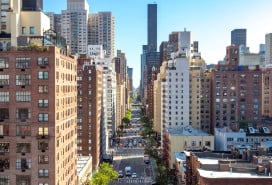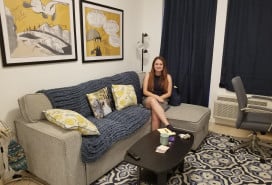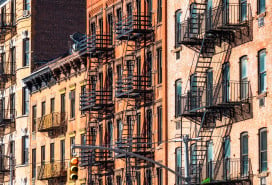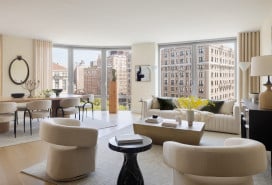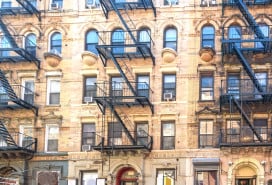What makes a first-floor apartment a "maisonette"?
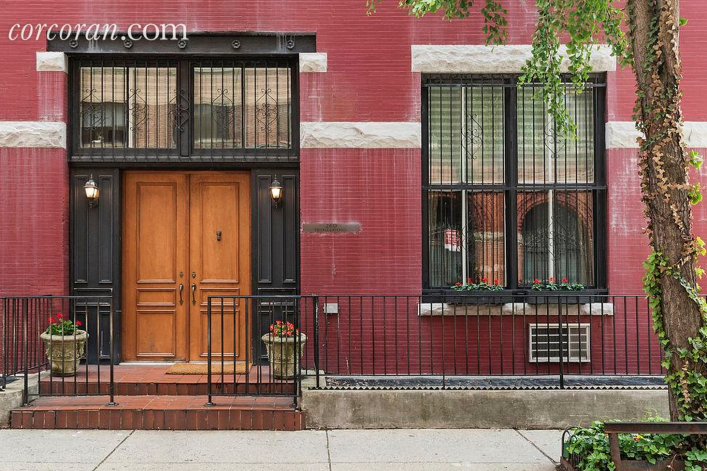
Sometimes, it seems like there are as many real estate jargon terms out there as there are actual apartments. In our new feature, Bricktionary, we decode them, one buzzword at a time.
As a rule, ground floor apartments get treated as second-class citizens of the real estate world, and not without good reason. Oftentimes, living on street level means extra noise, less light (thanks, in part, to bars on the windows), and a higher chance of rodent run-ins, not to mention nosy (or pervy) bipeds peeking in. There's a reason these apartments are generally cheaper than the exact equivalent located several floors up.
And then there are first-floor apartments dubbed maisonettes, which often carry impressive price tags. (Here's one on West 10th Street asking just under $10 million.) Indeed, the Wall Street Journal reported earlier this year that developers "eager to establish another class of coveted apartments" are transforming these ground-floor spaces from offices to luxe, high-priced apartments. So what makes a space a maisonette, and not just any old first-floor apartment?
Brokers say it's all about the private street-level entrance. "It's the outside entrance that really defines it," says CORE broker Lawrence Treglia, who notes that maisonettes also often have an additional entrance straight into the building's lobby. These apartments frequently have more than one floor (the term technically means "small house," after all), but it's not a strict requirement.
Typically, you'll find traditional maisonettes in older buildings in areas like the Upper East and Upper West Sides, or the West Village (as pictured above). However, as the craze for "townhouse-style" living marches on, Alyssa Soto Brody (also an agent with CORE) says she has seen many of them in recently constructed building in areas like Williamsburg, Cobble Hill, and Park Slope. Brooklyn is really known for townhouse living, and in neighborhoods like these, "this is a way to do it creatively," she says. (And also a way to get a taste of life as a townhouse owner if you can't swing the price of an actual house.) In any case, if a broker tries to talk up a maisonette on your next apartment hunt, no private entrance means no claim to the name.
(Tip: If you're not seeing enough places -- maisonettes or otherwise -- for sale in your price range or target neighborhood -- and/or you'd like to avoid a bidding war -- consider expanding your search to "off-market" listings. NYC real estate brokerage Triplemint, a Brick Underground partner, uses technology to mine public records and identify owners who may be ready to sell, meaning you can meet and deal with owners before their homes hit the market.)
Related:
What do people really mean when they say a place has "good bones"?


